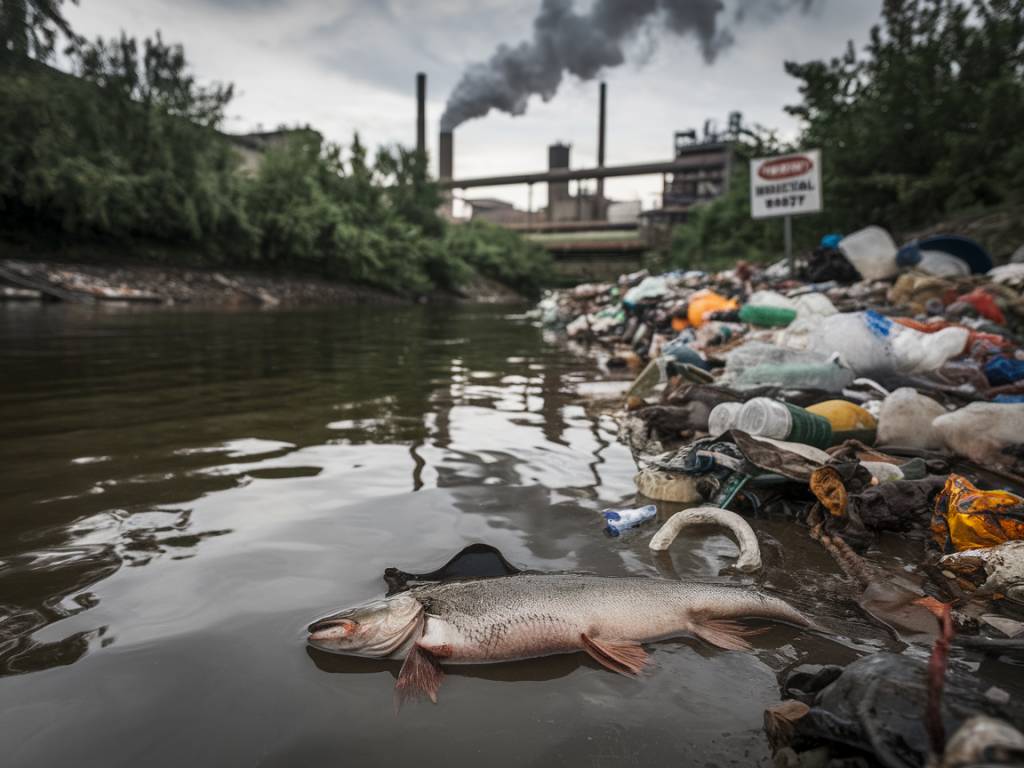The Impact of Industrial Waste on Water Pollution and How to Stop It
Water is one of our most precious resources, essential for life and well-being. Yet, industrial waste continues to contaminate rivers, lakes, and groundwater at an alarming rate. But how exactly does industrial waste contribute to water pollution? And more importantly, what can we do to prevent it?
How Industrial Waste Pollutes Water Sources
Industrial facilities produce vast amounts of waste, including toxic chemicals, heavy metals, and other contaminants. When improperly managed, these pollutants make their way into water systems, posing serious risks to human health and the environment.
Some of the most common ways industrial waste pollutes water include:
- Direct discharge: Industries sometimes release untreated or poorly treated wastewater directly into rivers and lakes, contaminating drinking water sources.
- Heavy metal contamination: Manufacturing processes often involve metals like lead, mercury, and arsenic, which seep into groundwater and accumulate in aquatic ecosystems.
- Oil and chemical spills: Accidental spills or leaks from factories and pipelines devastate marine life and contaminate drinking water supplies.
- Plastic waste: Industrial plastic waste finds its way into waterways, breaking down into microplastics that are toxic to aquatic organisms and humans.
The Consequences of Industrial Water Pollution
The impact of industrial pollution extends beyond environmental damage. Contaminated water has severe consequences for human health, agriculture, and economic stability.
Among the most alarming effects are:
- Health issues: Polluted water causes diseases like cholera, lead poisoning, and cancer. Heavy metals and chemicals in drinking water are particularly harmful to children and pregnant women.
- Ecosystem damage: Toxic waste disrupts aquatic life, leading to fish kills, habitat loss, and declining biodiversity.
- Agricultural consequences: Polluted water used for irrigation affects soil health and crop yield, leading to food insecurity and economic losses.
- Economic burden: Governments and communities face high costs for water treatment, pollution cleanup, and healthcare expenses linked to contaminated water consumption.
Solutions to Reduce Industrial Water Pollution
While the challenge is significant, there are effective ways to combat industrial water pollution. Governments, businesses, and individuals all have a role to play.
Stricter Regulations and Enforcement
Government policies and international regulations are essential to controlling industrial waste discharge. Stronger enforcement of pollution limits, heavier fines for violators, and incentives for sustainable practices can drive significant change.
Improved Wastewater Treatment
Industries must invest in advanced wastewater treatment technologies, such as:
- Filtration systems: Advanced filters remove heavy metals and dangerous chemicals before wastewater is released into the environment.
- Biological treatment: Microorganisms can break down pollutants naturally in treated wastewater.
- Closed-loop water systems: Recycling and reusing water within industrial processes minimize wastewater discharge.
Eco-Friendly Industrial Practices
Industries can transition to more sustainable methods, such as replacing hazardous materials with greener alternatives and reducing overall waste production. Adopting circular economy principles, where waste from one process serves as a resource for another, can greatly lower pollution levels.
Public Awareness and Corporate Responsibility
Consumers and advocacy groups play a crucial role in pressuring industries to adopt responsible practices. Supporting eco-conscious brands and advocating for stricter water protection laws can drive businesses toward sustainability.
Community Action and Individual Responsibility
Individuals can contribute by reducing plastic consumption, properly disposing of hazardous household chemicals, and supporting organizations dedicated to clean water initiatives. Every small action counts in the fight against water pollution.
A Future of Clean Water is Possible
Industrial waste pollution is a serious issue, but it is not insurmountable. With stricter regulations, cleaner technologies, and collective effort, we can protect our water sources for future generations. Water is life—let’s ensure it remains pure and accessible for all.
